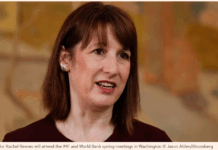By Rumyana Vakarelska
This week, David Cameron, the UK’s Prime Minister, reshuffled his cabinet and appointed the new UK’s EC commissioner, shortly before the Parliament’s summer recess. Moreover, new significant laws have been passed in the Commons, meaning that UKs coalition government is moving further to the right.
New ‘Big Brother’ legislation
One of the pieces of new legislation allows the government to access all Internet communication of UK residents, as a measure to strengthen the existing Data Retention and Investigatory Powers Act (RIPA), the fifth amendment of the Act since 2000. This addition came by surprise as noted by UK political observers and the UK press, while the government claims that this is an attempt to strenghten UK’s national security. The full impact of this amendment will certainly provoke a lot of debate in the coming months, but surely doctors, bankers, accountants and journalists among a few will need to take early note of the implications.
In addition, a new plan to limit the right to go on strike and take a part in public protests has also been put forwards, mainly to limit large strikes supported by UK’s leading trade union Unison. Those taking part in any form of public protest will need to read all the small text before they decide to hold a picket again.
All these changes have been brought forward in a week and clearly demonstrate a bitter reaction to Nigel Farage’s advance at the last European elections in the spring.
Cabinet reshuffle
The four ministerial appointments of eight so far, which will effect most UK residents and citizens include the new Foreign Secretary Philip Hammond, replacing William Hague, who becomes First Secretary of State, the departure of Kenneth Clarke, who was a member of the Conservative cabinet without a portfolio, playing a balancing act in the Cameron’s party promoting business interests, also a great pro-European, the departure of Michael Gove as an Educational secretary, (which will be a subject of a different article as he introduced many controversial changes in UK’s school system over the last few years), now being replaced with Nicky Morgan, who has no previous experience in education.
Gove himself will become Chief Whip in the Commons. Mark Harper, who left as Immigration minister after admitting that he had employed an illegal immigrant as a cleaner, becomes Works and Pensions minister, while the Business Minister Michael Fallon, who did a great job in his old position, is a the new Defence secretary. The new immigration minister was not yet named at the time when we went to press.
By that point, it is almost worth it keeping a newspaper clipping in your pocket to know who is who in their new roles for the next ten months and this is not the full list.
The next UK elections will be fought on areas that need capacity and consistency, including the economy, jobs, education, energy policy, Europe, and increasingly security. The above changes may have counter effect and draw voters to the key opposition in the face of the Labour Party. They may also consider the new Europeans Party, which represents the interests of all EU citizens in the UK, which a month after its registration, generated over 10, 000 votes in the European elections, especially if we look at the new EU commissioners’ appointments and how and if they really may represent us, in addition to the relative low turnout at European elections compared to general elections coming up soon both in Bulgaria and in the UK.
UK’s EU new Commissioner, Jonathan Hill, educated in Cambridge, who has been a Leader of the House of Lords, is a less known name. David Cameron will find it difficult to get the same rank position for him, as the previous UK Commissioner, Catherine Ashton, held successfully as the EU’s Foreign Affairs Commissioner.
Prospective and perspective senior women appointments
Kristalina Georgieva, Bulgaria’s EU Commissioner for EU’s crisis global response, is one of two key contenders for Ashton’s role if Bulgaria proposes her name as the new Bulgarian Commissioner. She would undoubtedly do a good job and will put once again Bulgaria on the right spot, while playing well a balancing act between EU countries’ interests and taking tough decisions on EU’s foreign policy implementation. Such appointment will raise Bulgarian voters participation in the forthcoming early general elections in Bulgaria on October 5, as well as in the UK general elections next year for the ones who possess dual citizenship in the UK.
One senior appointment this week in the face of Ros Altmann, a new minister promoting women’s employment until pension age, as many in their fifties are losing their jobs, is a clearly good news.
There was a push for more women in the Conservative-Liberal coalition government reshuffle, but Whitehall’s political lobby has doubts that some appointments have been rushed.
Voters know one thing: they do not want to be shipwrecked, like Citycruises’ boat passengers on the River Thames, some 500 meters from the Parliament when a large cargo barge crashed into a packed leisure boat. This happened because too little thought has been given for the boat traffic on a hot July afternoon.
Water in tidal River Thames was too low and the barge and any other boat piled in a little space in the middle of the river, where water is deeper. A small safety and capacity management detail that effects voters’ everyday life and one of many they may well vote on.
Eyewitness: Citycruises crash on the River Thames on Thursday 17 July by Rumyana Vakarelska
Budilnik’s starts a new English Page by Rumyana Vakarelska, Team New Europe
In the knowledge that news and analysis about Bulgaria in the UK press is limited or often biased, ‘Buldilnik’ newspaper has entered a new content partnership with Rumyana Vakarelska, an established City and Whitehall journalist of Team New Europe, an editorial and public affairs consultancy in London. From now on, ‘Budilnik’ newspaper will offer on a regular basis a new English Language Page inside containing original journalistic content in print and online on key developments in Bulgaria and Britain and UK’s ex-pat life to build a higher and well-informed mutual awareness of the two countries and the viable prospects ahead of both.
The English Page will include topics about business, politics, culture and identity that are of specific interest to the Bulgarian UK and world-wide ex-pat community, also known as ‘Drugata Bulgaria’, the Other Bulgaria. The first English Language page came out in the spring, enjoy the rest! May sponsors for the English Language page contact Rumyana Vakarelska by email: rumy.vakarelska
•





















